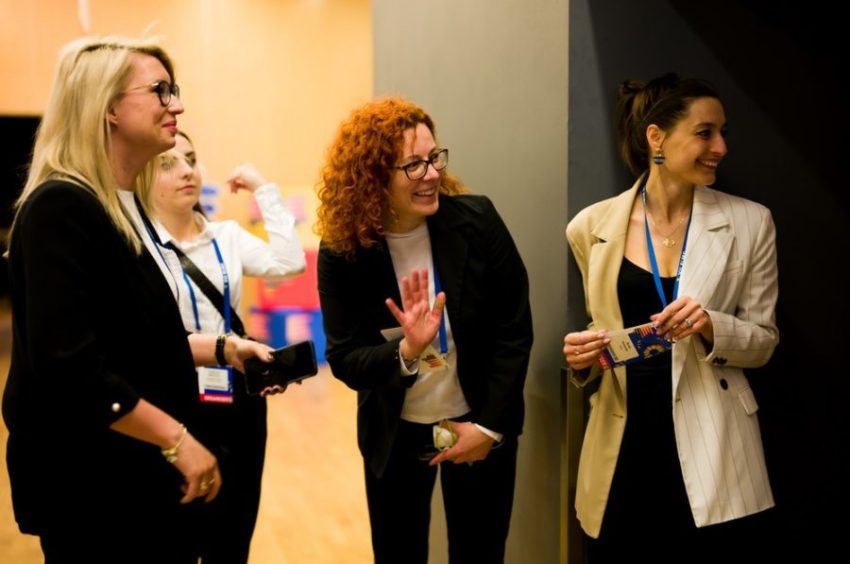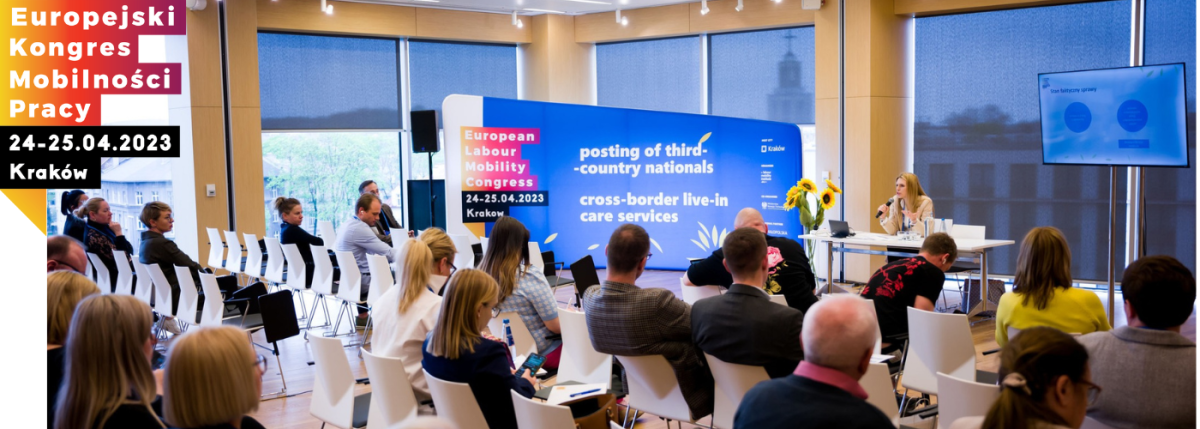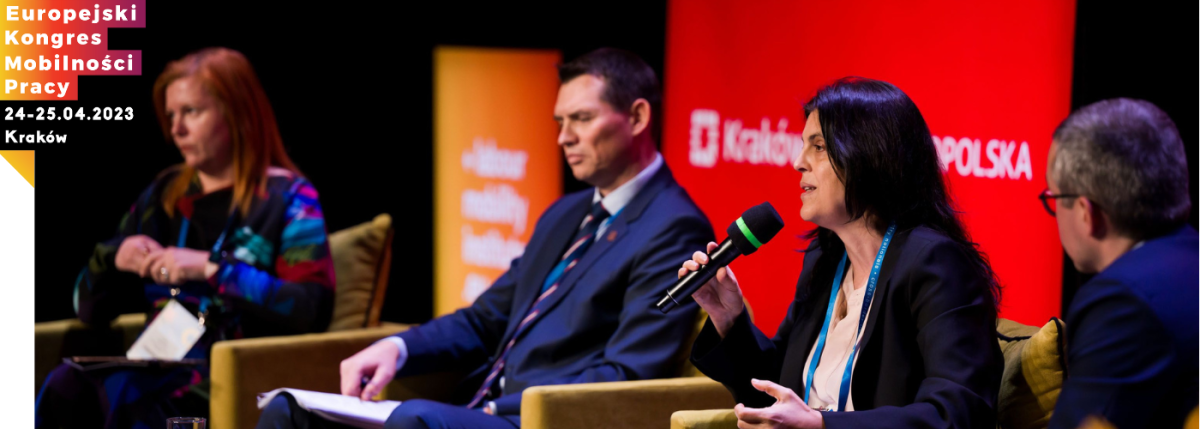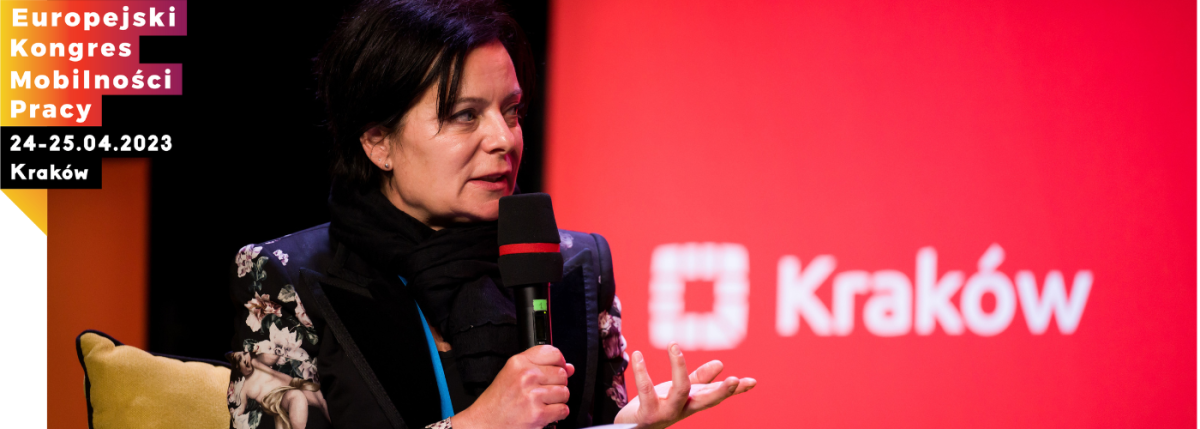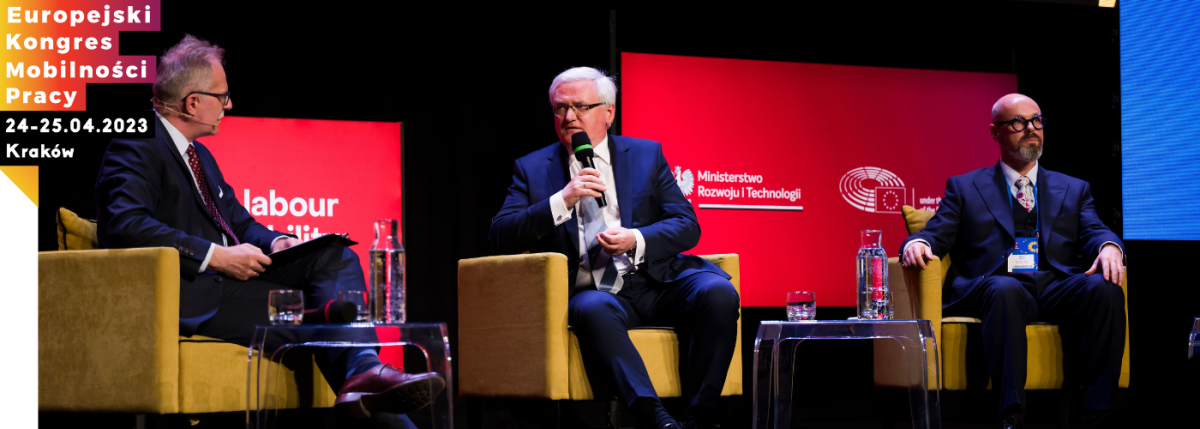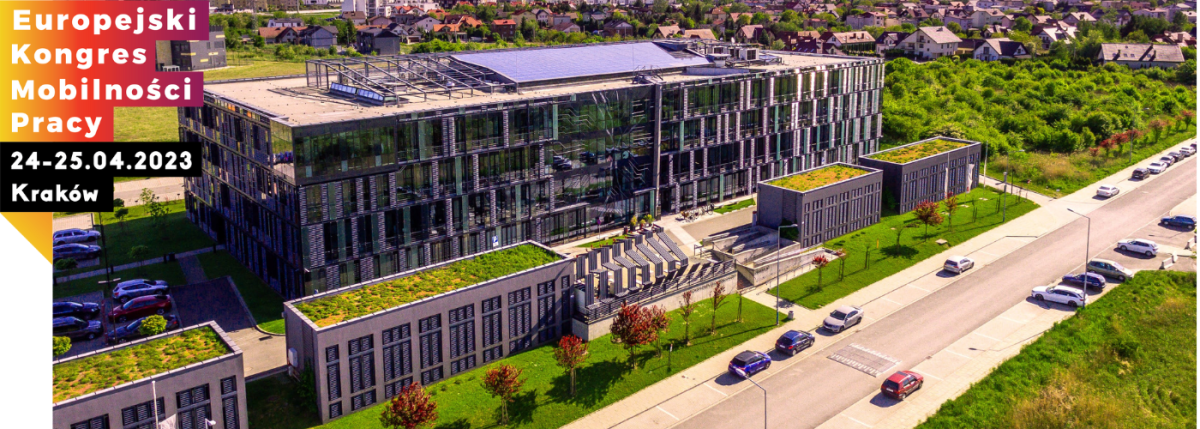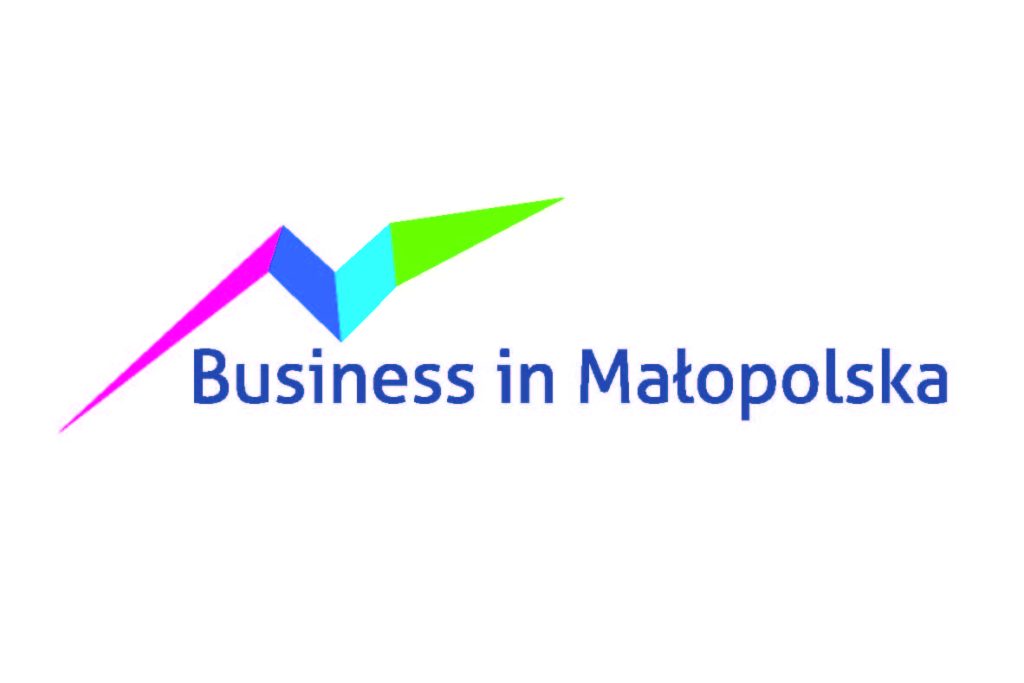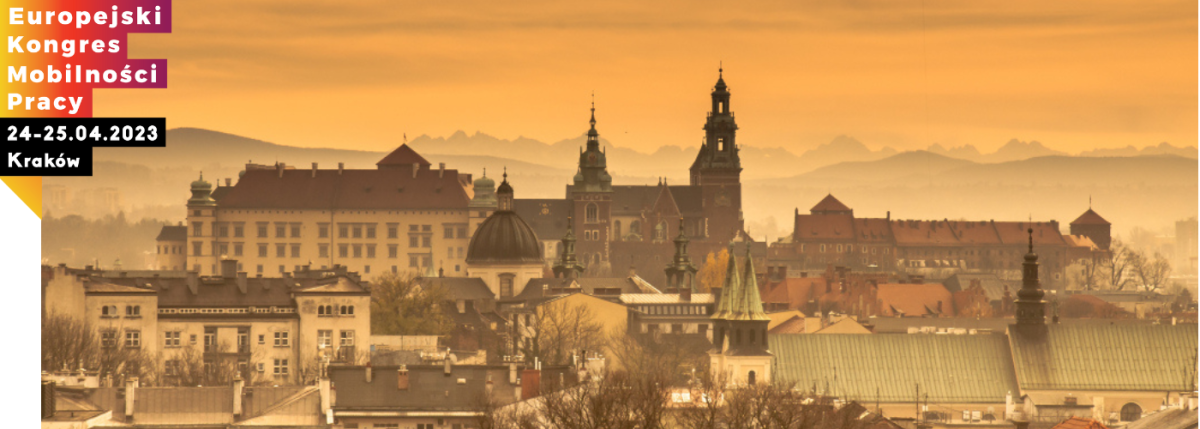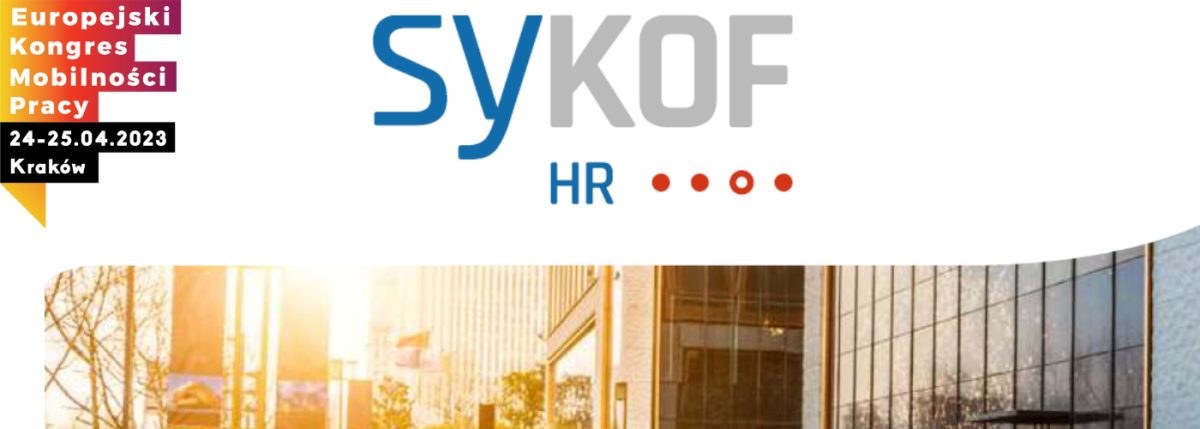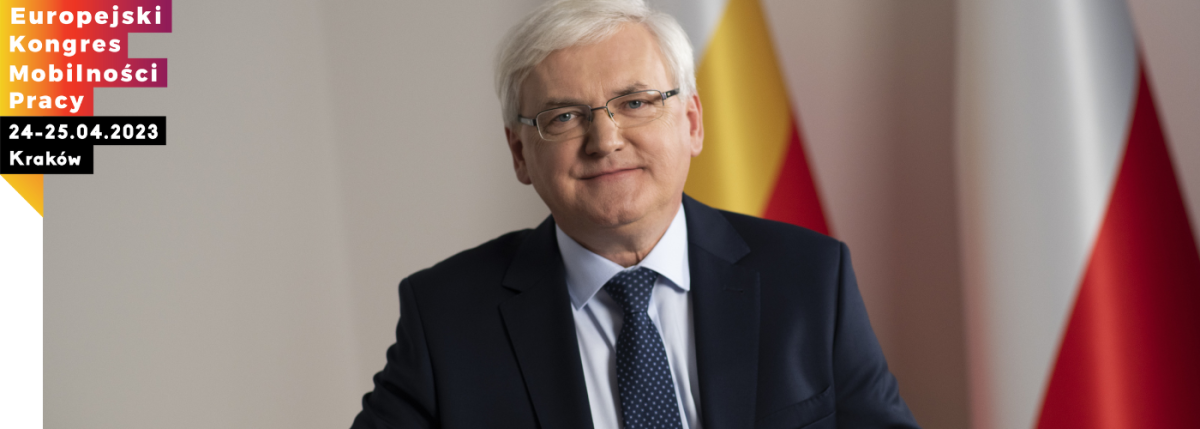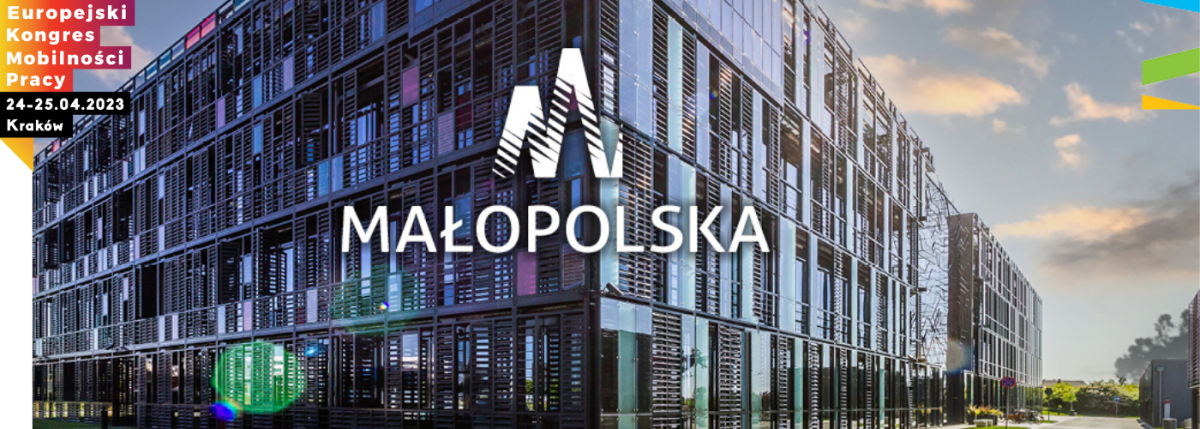“The principle of autonomous understanding of terms used in Union law prohibits giving the same concepts of Union law the meaning they have in national law. This allows you to get answers to many of your everyday questions. Knowledge of the basic principles of the European legal order therefore enables you to solve practical problems. It also gives you the opportunity to use effective arguments before the courts and authorities in any Member State”. – indicated the President of the European Labour Mobility Institute (ELMI), Stefan Schwarz, at the opening of the VII European Labour Mobility Congress (ELMC) 2023.
The above thought was creatively developed during the second day of the Congress. Traditionally, it was devoted to a series of practical workshops led by recognised practitioners from Poland and abroad.
On the future of the posting of third-country nationals, home care and digitalisation – practically!
The morning block of workshops on the second day started with simultaneous presentations by representatives of ZUS (Dr Andrzej Szybkie and Krzysztof Delert-Urban) and the Chief Labour Inspectorate (Dyr. Dariusz Górski) on the issues that bother every entrepreneur the most – methods of detecting irregularities and control activities in cross-border situations.
As the main topics of the ELMC 2023 were the mobility of workers – third-country nationals in the EU internal market, the future of home care services for the elderly in the EU and digitalisation in the posting of workers, the second day of the Congress did not lack practical presentations on these very issues.
A dedicated workshop on the posting of Ukrainian citizens to other EU countries was conducted by attorney-at-law Tomasz Rogala of the law firm PCS Paruch Chruściel Schiffter Stępień Chancellor | Littler (Congress Partner). In turn, ELMI President Stefan Schwarz and Marcin Kiełbasa, in their presentation “Vander Elst visa – fundamental right or common crime”, pointed out that German law, insofar as it introduces a requirement for posted workers who are third-country nationals whose situation in the sending state is regulated to obtain a visa before entering Germany and provides for automatic deportation in the event of entry without a visa, violates obligations under Article 56 TFEU. Notwithstanding this, the case law of the German courts violates the principle of the autonomy of concepts in EU law, which requires that concepts used in EU law and in national law be interpreted independently of each other.
Advocate Karolina Ziemianin, in the workshop ‘Judgment on the Bulgarian caregiver case – 7 things you need to know’, stated that in light of the judgments of the German labour courts, if a caregiver working in Germany is an employee, she is due remuneration for the actual working time (and not only the time specified in the contract). The obligation to pay remuneration also covers on-call time and does not apply to actual time off. At the same time, the speaker emphasised that the title judgment is individual in nature and therefore does not automatically apply to all caregivers posted to Germany.
On the other hand, the issues of digitalisation and compliance in the posting of workers were addressed in a workshop by Wim Cocquyt and Jez Etherton (FRAGOMEN – Congress Partner), as well as by Lawyer Tanel Feldman and Lawyer Ewald Oberhammer (COMIC) – which provided a lot of practical examples and solutions in this respect.
Trust and cooperation … and solid knowledge in uncertain times
Carita Rammus from the European Commission assessed on the first day of the Congress that more mutual trust and cooperation is needed in cross-border labour mobility. A workshop by Iwona Kasprzyk Sowa and Magdalena Klimczak-Nowacka (European Labour Office, ELA) was devoted, among others, to this important aspect of cross-border mobility. The old Roman adage says ‘trust but verify’, so there was no lack of practical knowledge about posting to individual EU Member States.
As with every edition – the organisers’ intention was for the workshop to focus on the “most popular” posting destinations – the so-called Member States receiving the highest number of posted workers. According to the latest research of the winners of the 2017 Labor Mobilis Award – Frederic De Wispelaere and Prof. J. Pacolet (and Lynn De Smedt) – these are Germany, France, Belgium, the Netherlands, Austria, Italy and Sweden – the workshop dealt with these directions and was conducted by lawyers of the respective law practising in the respective countries on a daily basis (in order – by Beata Donay, Agnieszka Paszkowski, Bruno De Pauw, Marcin Lewandowski, Rudi Vouk, Davide Vieni, and Fabrizio Vittoria and Martin Enquist Källgren). Significantly, the workshop not only covered the most popular secondment directions, but also the most up-to-date topics – e.g. the entrustment of temporary workers in Germany (Lawyer Donay), the difficulties of the Austrian administration in accepting the legality of a secondment to Austria (Lawyer Vouk), or the operation in France by a French (and not a Polish – seconding) company.
Last but not least, the second day of the Congress and its reception by the Participants as well as the Speakers indicates that a kind of community of legal posting enthusiasts, who care about practical and reliable solutions, has been and continues to be established around the Congress. This is an excellent prognosis for the future in the current uncertain times.
Marcin Kiełbasa
